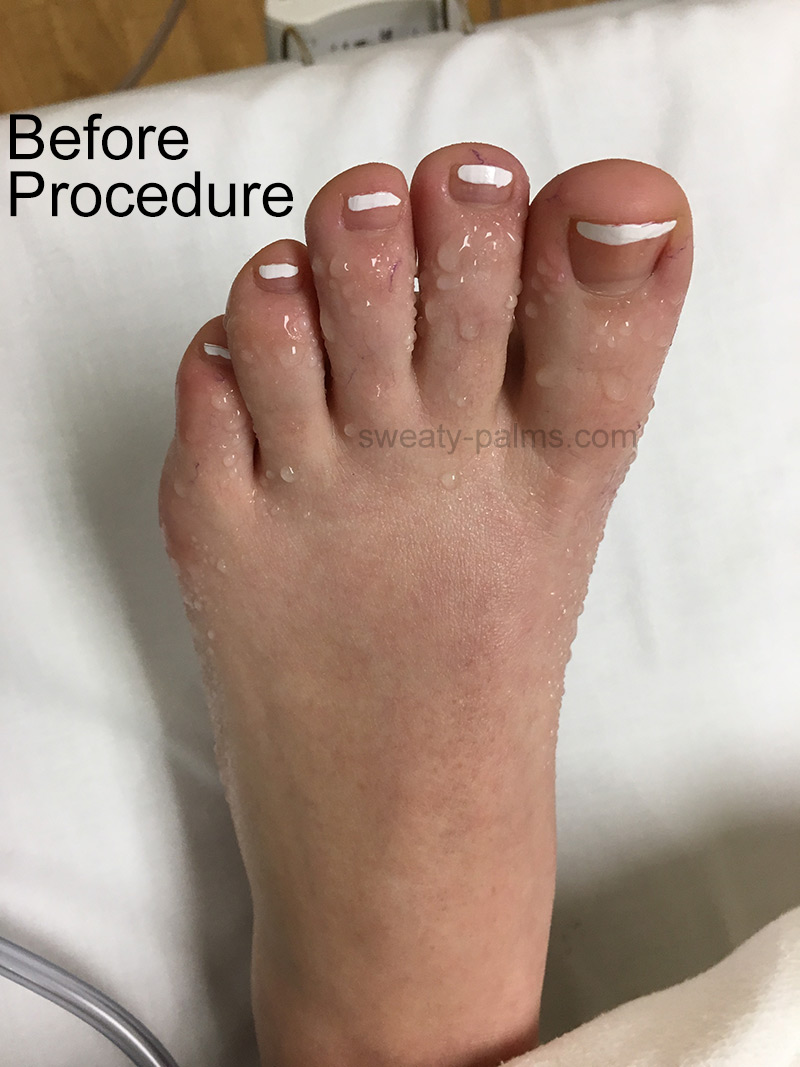Recognizing the Origin of Excessive Sweating and Its Effect On Day-to-day Live
While it is commonly comprehended as a physical response to regulate body temperature, the triggers for excessive sweating can vary commonly among individuals, encompassing not only physical aspects however mental and also psychological components. By diving right into the root causes of hyperhidrosis and exploring its diverse impacts, a deeper understanding of this pervasive concern can be acquired, dropping light on the complexities that individuals grappling with extreme sweating browse on a daily basis.
Physiology of Sweat Glands
The policy of sweat production, a critical physical procedure, is largely controlled by the task of gland dispersed across the body. Gland are categorized right into two major types: eccrine and apocrine glands. Eccrine glands are one of the most countless and are found in mostly all areas of the body. They play a crucial function in thermoregulation by producing a watery fluid onto the skin's surface area, which helps and evaporates cool the body down. On the other hand, apocrine glands are concentrated in areas abundant in hair follicles, such as the armpits and groin, and their secretions are thicker and milky in look.
When the body temperature rises, either due to physical activity, high temperatures, or psychological stress and anxiety, the anxious system sets off the sweat glands to create sweat. This sweat is composed largely of water and electrolytes like salt and chloride. The process of sweat manufacturing is essential for keeping the body's interior temperature level within a narrow, optimal array, highlighting the critical role gland play in human physiology.
Triggers for Excessive Sweating
In comprehending the root causes of too much sweating, it is critical to determine the triggers that can lead to this physical response. Physical exertion, high temperature levels, and spicy foods are also known to cause too much sweating in people vulnerable to this problem.
Furthermore, medications such as some antidepressants, opioids, and specific supplements can likewise work as triggers for hyperhidrosis. Understanding these triggers is necessary in handling too much sweating successfully - How to stop sweaty hands. By recognizing and dealing with the details triggers that trigger too much sweating in an individual, healthcare service providers can create customized treatment plans to relieve this condition and enhance the individual's lifestyle
Medical Issue Associated
Associated with excessive sweating are various medical problems that can intensify this physical response. One typical problem is hyperhidrosis, a problem characterized by unusually enhanced sweating that goes beyond the body's thermoregulatory requirements. This can manifest in focal locations like the palms, soles, underarms, or face, affecting an individual's lifestyle because of social embarrassment and discomfort.
In addition, endocrine disorders such as hyperthyroidism, diabetes mellitus, and menopausal hot flashes can additionally lead to excessive sweating. Hyperthyroidism causes an overflow of thyroid hormonal agents, increasing metabolic rate and causing sweating. Diabetes mellitus can generate sweating episodes, especially during hypoglycemic episodes when blood glucose levels go down also reduced. Menopausal hot flashes, associated to hormonal variations throughout menopause, can trigger intense and sudden sweating, frequently accompanied by flushing and heart palpitations.
In addition, infections like endocarditis, hiv, and tuberculosis have actually been connected with night sweats, an usual sign known to interfere with sleep and affect general health. These clinical conditions highlight the varied array of underlying aspects that can add to extreme sweating, requiring comprehensive evaluation and administration by healthcare experts.
Emotional and Mental Aspects
:max_bytes(150000):strip_icc()/sweaty-palms-palmar-hyperhidrosis-4691320-10512b2d428846059753b76df6dc74c2.png)
Effect On Social Communications
Extreme sweating can have profound effects on an individual's capability to involve easily in social communications. The visible indications of sweat stains or damp spots on clothes can result in shame and self-consciousness, triggering people to take out from social situations. This withdrawal can impact relationships, restriction social activities, and impede expert and individual growth.

Additionally, the stress and anxiety and look at this site self-confidence problems coming from extreme sweating can impact interaction and interpersonal skills. Individuals might struggle to concentrate on discussions, get involved in group activities, or share themselves confidently. This can result in sensations of seclusion and isolation, as social links end up being challenging to keep.
Conclusion

While it is commonly comprehended as a physiological feedback to control body temperature, the triggers for extreme sweating can differ commonly among people, including not just physical factors yet psychological and likewise psychological aspects. By diving right into the origin triggers of hyperhidrosis and discovering its diverse impacts, a much deeper understanding of this pervasive problem can be acquired, shedding light on their explanation the complexities that people grappling with too much sweating navigate on an everyday basis.
Physical physical effort, high temperatures, and spicy foods are additionally understood to set off excessive sweating in people susceptible to this problem. By determining and resolving the certain triggers that motivate excessive sweating in a private, healthcare service providers can establish tailored treatment strategies to minimize this condition and improve the individual's quality of life.
Too much sweating can have profound effects on an individual's ability to engage comfortably in social communications.